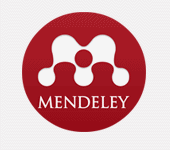Kajian Aspek Keselamatan dan Kesehatan Kerja di Sektor Usaha Informal (Studi Kasus: Pengemasan Ikan Kecamatan Tanjung Tiram Kabupaten Batu Bara)
Abstract
One of the sectors from the work is a serious concern in the aspect of occupational safety and health (K3) is the informal work sector. The widespread phenomenon of the informal sector absorbs many workers in Indonesia. One of the existing informal employment sectors is fish packaging work. The purpose of this research is to analyze aspects of occupational safety and health which are examined from aspects of the work environment, work tools and materials as well as how to do the work. This research is a descriptive type with a case study approach. The object of this research is the location of fish packaging work and several fish packaging workers who can provide information related to occupational safety and health aspects. The results of the study are aspects of a dangerous work environment such as noise, humidity, poor housekeeping and lack of work motivation and career paths. Aspects of work tools and materials, namely there are no work rules, inadequate working equipment conditions, no work facilities, low awareness of the use of equipment and the unavailability of personal protective equipment. Aspects of how to do work in terms of working not carefully, working without using personal protective equipment such as gloves, bending and squatting work attitudes. The potential for work accidents is being pierced by fish thorns, being hit by an ice block, being scratched by a saw and falling because the floor is slippery. Control efforts in the fish packaging workplace are almost non-existent, namely there is no technical control, no administrative control and no control using personal protective equipment, this is evidenced by the number of workers who do not use gloves made of rubber.
Keywords: The Environment of Work, Tools and Materials, How to Work
Full Text:
PDFDOI: http://dx.doi.org/10.30829/jumantik.v6i4.10083
Refbacks
- There are currently no refbacks.
Copyright (c) 2021 Budi Aswin

This work is licensed under a Creative Commons Attribution-ShareAlike 4.0 International License.





